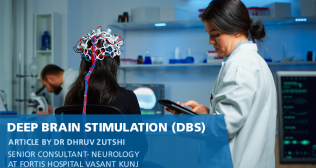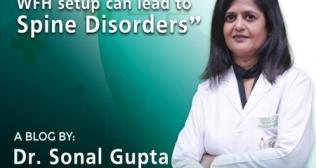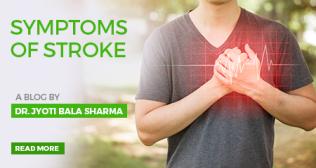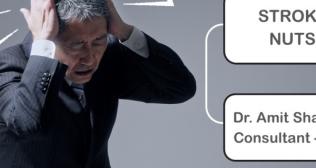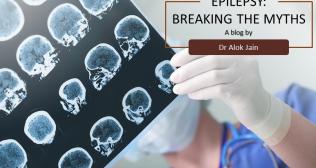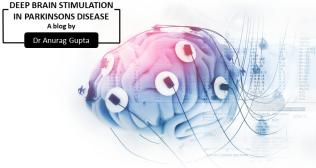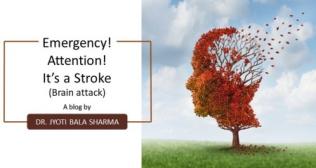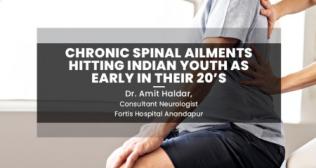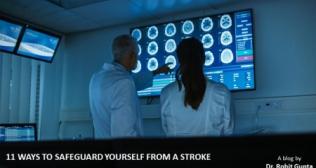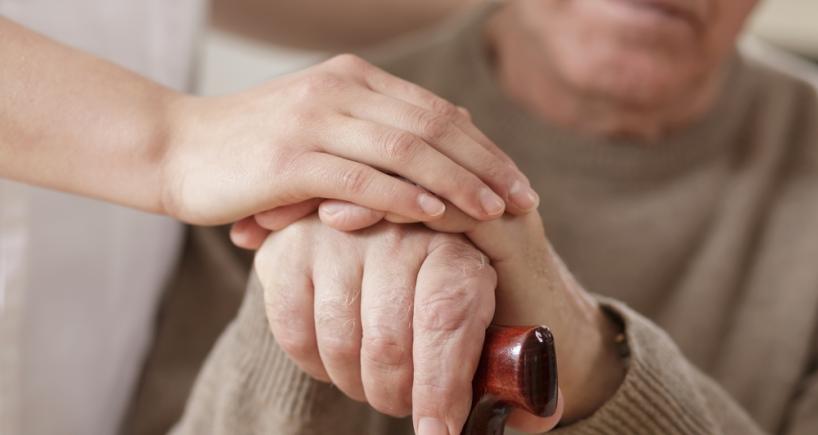
How to Live Better with Parkinson's Disease?
Parkinson's disease is a neurodegenerative disorder caused by a deficiency of dopamine-producing neurons. Parkinson's disease generally affects elderly people in 6os and 70s however young onset Parkinson’s disease affects people younger than 50 years in about 5-10% of cases.
Clinical symptoms
The clinical symptoms can be divided into two categories
1. Motor symptom
2. Non-motor symptoms
1. Motor symptoms:
- Shake or tremors
- Slow movements
- Stiffness in body parts or rigidity in medical terms
- Loss of balance or difficulty walking
2. Non-motor symptoms of Parkinson's Disease:
Many troublesome non-motor symptoms adversely affect the quality of life of Parkinsonian patients
- Fatigue
- Low blood pressure or fluctuation in blood pressure with posture
- Bladder and bowel problems
- Restless legs- discomfort in legs
- Skin and sweating problems 6. Sleep problems
- Eating, swallowing, and saliva control
- Speech and communication problems
- Visual problems
- Pain
- Mild memory and thinking problems
- Anxiety
- Dementia
- Depression
- Hallucinations and delusions
Symptoms preceding the onset of Parkinson’s Disease:
Some symptoms may precede the onset of Parkinson's disease by many years like
- Constipations
- Rapid eye movement sleep behaviour disorder or RBD is a sleep disorder in which you physically act out vivid, often unpleasant dreams with vocal sounds and sudden, often violent arm and leg movements during sleep
- Loss of smell or reduced smell sensation
Causes Parkinson’s Disease
Parkinson's disease is caused by the interplay of genetic and environmental factors. Environmental factors that are associated with Parkinson's disease are rural living, well water drinking, farming, pesticide exposure repeated head trauma like in boxing. Tobacco Smoking and association with pets seem to protect against Parkinson's disease.
Treatment of Parkinson’s Disease:
Symptoms are controlled with medicine to a large extent for 8-10 years after onset of the disease. As the disease advances effect of medicine wears off soon and patients may freeze completely for some duration which is known as “freezing episodes”. There may be excessive extra-involuntary movements known as dyskinesia. Some patients swing between freezing and dyskinesia, and hardly spend any time in a normal state. Apomorphine injections help in overcoming freezing quickly. At this advanced stage, patients benefit from Deep Brain Stimulation or DBS surgery. In this technique, electrodes are implanted into a specific part of the brain. The electrodes are connected to a generator implanted in the chest near the collarbone. The generator sends electrical pulses to the brain and may reduce Parkinson's disease symptoms.
Care tips for Parkinson's disease patients:
1. Eat healthy food and maintain good hydration, include plenty of vegetables, fruits, and fibres in your diet, which can help with constipation which is quite common with this disease. Flax seeds and Isabgol husk are good sources of fibre
2. Levodopa medicine should be taken empty stomach, one hour before or two hours after the meal. A high protein diet or vitamin B6 or pyridoxin interferes with the absorption of levodopa.
3. Stay active, exercise daily, practice yoga and meditation. Cycling skill is exceptionally preserved in patients which can be opted as exercise. As falls are quite common, go for static cycles and exercises that are safe. There are also exercise programs that are designed specifically for people with Parkinson's disease
4. Make your home safer – get rid of loose rugs and clutter, make sure all electrical cords are neatly tucked away and anti-slip flooring /tiles and side rails in the washroom
5. Join support groups as it gives you strength that you are not the only one and you get many innovative care tips from other people
6. Take all necessary adult vaccination shots like pneumococcal, influenzas, and COVID- 19. Infection worsens symptoms of Parkinsonism followed by a prolonged recovery period
7. Any surgery or intercurrent illness is poorly tolerated by these patients and symptoms worsen after surgery. Go for a specific rehabilitation exercise program to attain pre-surgery status
8. Vision should be clear, get cataract operated, appropriate corrective of presbyopia (nearsightedness) refractive errors but avoid progressive lens as it may increase risk of fall. Artificial tear drops should be used for the lubrication of the eyes
9. Get hearing checked and get hearing aids if needed
10. Be aware of driving safety – there may be a misjudgement of distance, avoid driving. If you still drive get your vision checked thoroughly
11. Patients should carry an identity card or GPS tracker, as there may be trouble with memory with disease progression
12. Learn more about Parkinson's disease and its treatment – This way you can be actively involved in your care, and maintain symptoms diary as this guide doctor to titrate medicines These small care tips bring can bring significant change in quality of life of Parkinson disease patient.
Categories
Clear allMeet the doctor

- Neurology | Neurology
-
26 Years
-
1200







